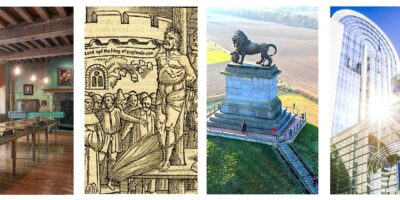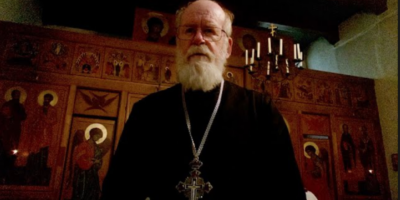This weekend finishes Refugee Week, arousing awareness of the vast numbers of those displaced globally through war, climate change, famine, poverty, persecution, terrorism or religious strife.
Activities of this growing world movement celebrate the contributions, creativity and resilience of refugees and asylum seekers. As we are witnessing in Ukraine, the causes of displacement are interrelated. Daily headlines make us aware of the acute famine threatening in Africa and Asia due to the Russian blockade of Ukrainian grain exports. This in turn will cause millions more to seek survival by migration.
Russia’s invasion has caused nearly five million Ukrainians to cross their nation’s border to find at least temporary refuge. A quarter of those have been forcibly evacuated into Russia. More than 780,000 Ukrainians are currently in Germany, almost 380,000 in the Czech Republic and 137,000 in Italy.
Pause for a moment to imagine those numbers – Ukrainian refugees in Germany are equal in number to the whole population of Amsterdam. Primarily women with children (as the men need to stay to defend their country’s freedom), they need housing, medical care, education, social lives, income and food. Although not officially classed as refugees, another seven million are ‘internally displaced’ within their own country with similar needs. That’s more than the whole population of Norway, for example.
The United Nations High Commision for Refugees defines a ‘refugee’ as a person who has fled war, violence, conflict or persecution and has crossed an international border to find safety in another country. The UNHCR estimates that for the first time in recorded history those displaced now number 84 million, with over 26.6 million refugees forced to cross borders and the remainder displaced within their own land.
Permanent
All of Europe is involved in the Ukrainian crisis. We are all being affected in one way or another. Although the EU has granted Ukrainians the automatic right to stay and work throughout its 27 member nations for up to three years, many want to return home as soon as possible. In fact, nearly three million have already done so, currently at the rate of 30,000 per day. Kyiv is now back to two-thirds of the pre-war level of population.
Welcoming refugees, wherever they come from, is now a permanent part of European life. This is not a phenomenon passing when the Ukrainian conflict is over, however long that will be. While the Ukrainians have in most places been compassionately received, given the brutality of Putin’s invasion, many other displaced persons are not being received warmly by Europeans. Yet of all people, Christians should be conscious of Jesus’ instructions that as we offer shelter, food, drink, clothing and comfort ‘to the least of these my brethren’, we are ministering to Christ himself (Matt. 25:34-6). The Bible plainly calls God’s people to welcome foreigners (Deut. 24:14). That means being prepared to step out of our comfort zones, offering friendship to sojourners whatever their faith and welcoming them into our communities. The ministry of hospitality brings comfort, peace and hope to the heart, mind and soul of those who have been uprooted.
Healing
The theme of this year’s Refugee Week is ‘healing’, responding to the triple trauma refugees experience of 1) having to leave home and loved ones, letting go of the familiar, 2) risking dangerous journeys towards an uncertain future, and 3) often facing indifference, hostility and rejection in their land of exile. Refugees struggle with a sense of loss and disruption. They need healing from painful experiences to rebuild their lives from scratch.
Our faith communities need to be such places of healing. That requires being intentional about welcoming refugees. God can use them to enrich our faith and lives as we develop relationships together.
Here are ways to pray, suggested by the Refugee Highway Partnership:
- for the essential needs of security, shelter, water, food and medical care.
- for peacemakers to bring peace to countries where wars, violence and persecution are forcing people from their homes.
- for a hope and a future for our forcibly displaced brothers and sisters who live in difficult circumstances and with uncertain futures.
- for refugee women and children, among the world’s most vulnerable people, who make up more than half of the world’s refugee population.
- for refugee youth, far from home, unable to return home (less than 1% of the world’s refugee population is ever resettled).
- for countries hosting refugees, 80% of whom is found in developing countries like Pakistan, Iran, Jordan, Lebanon, Turkey, Kenya, Chad and Ethiopia.
- for the UNHCR and Non-Governmental Agencies serving refugees and Internally Displaced People (IDP), often struggling for the funding needed to provide their services.
- for the Refugee Highway Partnership, a dynamic and growing international network of individuals, churches and Christian agencies that are finding ways to help local churches seek the welfare and protection of forcibly displaced people.
Till next week,



